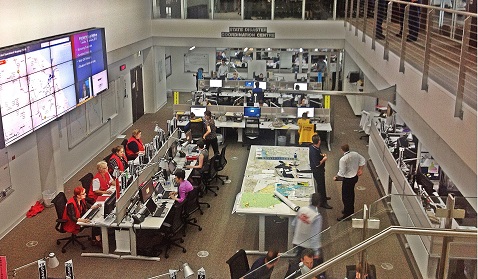Creating a single “scalable” national agency to lead disaster recovery and resilience efforts would bring many benefits, an interim bushfires report says.
The Royal Commission into National Natural Disaster Arrangements released a 40-page list of “interim propositions” last week on Friday for local, state and federal governments to consider and respond to ahead of a final report at the end of October.
It said a standing agency could provide national leadership for broader resilience policy development and foster consistent approaches to recovery and lessons management, including by building resilience in communities.
The report’s list of suggestions on disaster recovery funding include:
- The federal and state governments working together to ensure the level of disaster recovery support available is consistent for communities across different states, territories and local government areas; and
- All governments working on prioritising the development of pre-agreed recovery programs, harmonised eligibility criteria and evidentiary requirements to promote equitable access to support across jurisdictions.
The report also suggests Disaster Recovery Funding Arrangements (DRFA) be amended to specifically allow for funding of projects in circumstances where:
- the project would enhance the resilience of a community in respect of an identified high risk of a natural disaster recurring; and
- the project in question is likely to result in an overall reduction in the cost of government funding (taking into account both the up-front cost of the project and the cost of government recovery funding) should the natural disaster affect the community again.
The reports says that “as a matter of priority, the Australian, state and territory governments should work together to find ways in which the principle of ‘building back better’ to enhance communities’ resilience and risk mitigation can be expressly incorporated into and promoted by the DRFA.
“Relocation of buildings, infrastructure and/or communities rather than rebuilding may need to be incorporated in high-risk areas,” it says.
Responses to the draft propositions will be accepted until 5pm (AEST) 16 September 2020.



